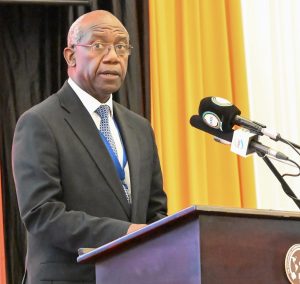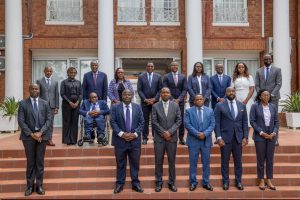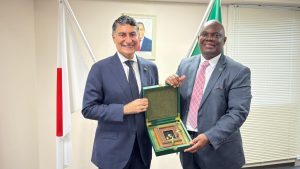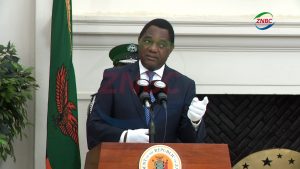By Joy Nyambe
Cabinet has approved the establishment of the Presidential Constituency Energy Initiative and Programme, aimed at developing small solar farms of two megawatts in each of the 156 constituencies nationwide, amounting to a total of 312 megawatts.
Cabinet has also agreed that a portion of the 2026 Constituency Development Fund –CDF- will be allocated to the Presidential Constituency Energy Initiative –PCEI- for immediate implementation.

This Has BEEN confirmed in a statement issued today by Chief Government Spokesperson, CORNELIUS MWEETWA, following the 22nd Cabinet Meeting held on Monday, 24th November, 2025, at State House.
Mr. MWEETWA who is also Information and Media Minister said the small-scale solar farms will utilise existing power substations and connection points, as well as suitable sites within each constituency, to allow for rapid implementation and localised energy resilience.
He added that the development of the solar farms in each district will be partially funded by the CDF, in partnership with the private sector, and will be implemented by local councils, with power sold to ZESCO Limited.
 Mr. MWEETWA explained that the objectives of the project are to provide electricity to all districts nationwide and create a guaranteed income stream for participating constituencies through power sales, enabling community development while contributing to national energy security.
Mr. MWEETWA explained that the objectives of the project are to provide electricity to all districts nationwide and create a guaranteed income stream for participating constituencies through power sales, enabling community development while contributing to national energy security.
In addition, Cabinet approved the declaration of Mutinondo Falls in Lavushimanda District, Muchinga Province, as a National Monument, recognising its national significance and the need to conserve the site.
Mr. MWEETWA said Mutinondo Falls is one of Zambia’s most spectacular waterfalls and is of high ecological and environmental importance.
Cabinet also approved the amendment of Schedule B of the principal Fisheries Regulations of 2012, introducing an annual fishing prohibition on Lake Tanganyika from 15th May to 15th August.
The Chief government spokesperson said this aligns with the Regional Charter signed by the four countries sharing Lake Tanganyika, Zambia, Tanzania, Burundi, and the Democratic Republic of Congo.
Mr. MWEETWA explained that the annual fishing ban is intended to address overfishing, destructive practices, climate-related breeding disruptions, and transboundary pressures.
Meanwhile, Cabinet approved in principle the introduction of a Bill in Parliament to strengthen meteorology services through partial commercialisation and cost recovery of weather products.
Mr. MWEETWA said that over the years, Zambia’s meteorological services have evolved to support a wide range of socio-economic sectors.
He however said the development of the sector has not kept pace with growing demand.
Once enacted, the Bill will provide a legal framework for the provision of weather and climate services to all sectors of the economy, supporting sustainable socio-economic development through the Zambia Meteorological Department.








